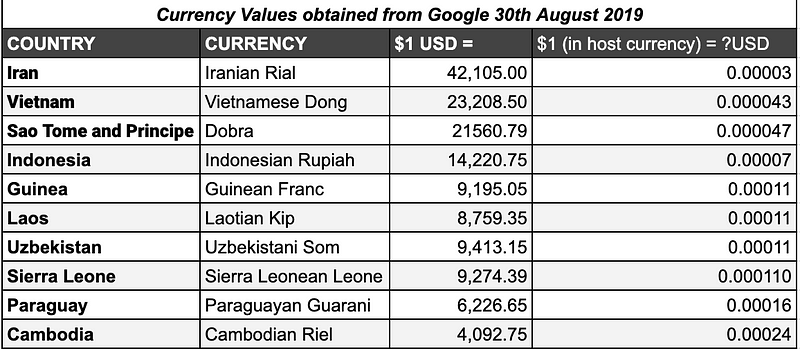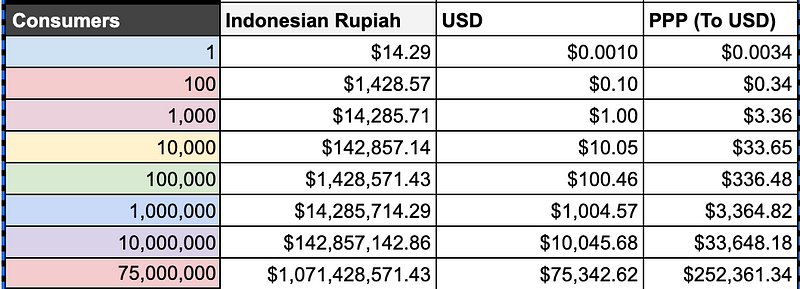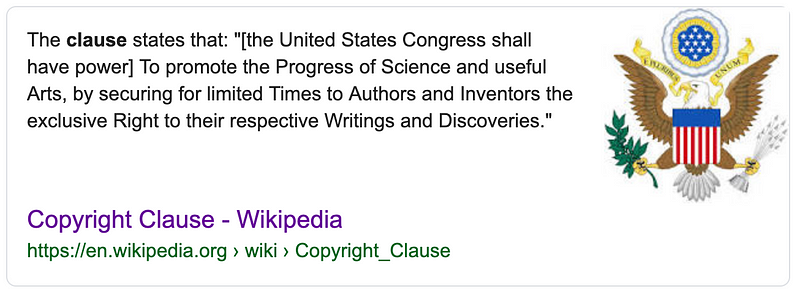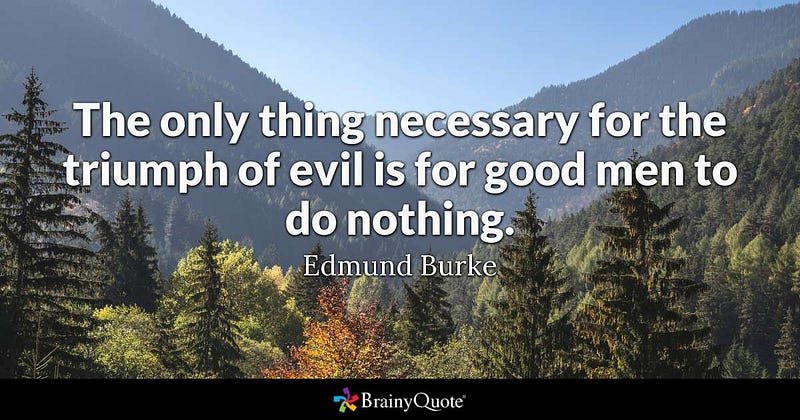Knowledge Banking Infrastructure - Cyber Socio-Economic Foundations for Our Shared World

Friendship Padlocks — As an image, that speaks about Empathy & Human Kindness.
First Draft (hasn’t been reviewed properly yet)*
It’s a little personable, i guess it’s intended the reader lives with that, as i did the work that brings about the opportunity — and i’m kinda tired of the harms for having done so. This is about how being real, and honest, can help our world.
I shouldn’t need to apologise for having done the work. Whether of not it’s considered ‘convenient’ for others, i can already show how it’s been invaluable for others but that’s not what they want to see in a court of law & I’m not alone.
The provenance of my works, is considered a risk — by bad actors.
So, what’s wrong, with ‘the way it works’, and how can we fix those issues.
How can we ensure that it is shown to be a wilful choice not to do so, as to retain hope and trust, that our societal leaders; to truthfully act in our interests, and not more simply, soulfully (in truth) and merely, be provided our consent to, act in their own.
The subject of my writings on medium to date, is about an ecosystem i’ve been working to develop seeks to provide solutions for humanity that incorporates the concept of a knowledge banking Industry enabled world.
Many people suggest that it’s simply too expensive to do, whilst it is my position that it is simply too extensive not to do so… as they haven’t done the calcs.
Whilst the likely outcome will be, that ‘they’ve figure it out’
The incidental problem becomes, that if they’re ‘ready and willing’ to act with such levels of moral poverty, already, today; then how can anything be fixed.
Other than via means, that support the concept of ‘free work’, in the hope that someone, or a group from the worlds population decides, it is a problem to solve.
There are many broader dynamics, leading me to be in a situation where i can do little more than write about it.
I often feel that, this is intended to be mean spirited...
The infrastructure investment is not something anyone can do for free, Yet this is the condition put upon many in society upon a basis that it is suggested by others to be entirely reasonable.
I have protested this belief put to me for many years, and it is quite tiresomely received now, after many years.
Humanity has upon it some choices to make, and they’ll be made, one way or another.
Today, it’s suggested that people, particularly ‘web workers’ do their work for free; but this must, in fact, be a statement made by the mentally unwell, or incapable, irrespective of their title or role with important institutions…
Slavery practices have always been considered reasonable by those benefiting from it. Whilst those who propagate wrongdoings seek amnesty; raw facts say,
CALCULATION OF COSTS TO DO WORK ONLINE
- Monthly Internet Costs : AU ~$40 PCM+
- Cost of a Mobile Phone: AU ~AVG $20 Per Month / 36 months
- Cost of Laptop: AU ~$55 (~$2000 / 36 months)
- Cost of electricity, living costs, etc. (say min. $400 PW)
or about ~$10.65 an hour (AUD), when calculated over a 5 day 8 hour a day week for those living in poverty.
Life, is not free. Suggesting it is, is a form of violence
The means to be healthy, is not free. There is a difference between ‘free work’ & other work, in life today, it’s about economic instruments (and the lack of them).
Those that are provided for use, and those that are more conveniently not provided, by choice.
On a moral basis, say — If micropayments are added to the costs of automated web-payments, at a basic rate of per hour (say $1.80 AUD); the redistribution of consumption vs. production payments for human labour far out strips the costs for people who work productively, during a week.
Whilst the calculation is not ‘fit for purpose’ (as it is far too basic) i hope the consideration can be understood.
Internet today, does not value work related human labour.
The problem brought about, is that it values, exploitation.
Internet service infrastructure today does not support ‘human identity’ as part of the core for how it it made to work. Attached to this problem, is anything that relates to human activity; as distinct, to activities carried out by employees, or agents of incorporated entities.
This is an elected choice of the powers that be; those who decide what they support, and what they do not for whatever reason. Therefore, if we do not build tools to support diversity, others are left without accountability in anyway meaningful, for any system of government.
A question is, is this what ‘they’ want by intended designs?
Problem are so bad, that their now publicised issues of UN peacekeepers raping with impunity. This isn’t what was supported by the people, of our world…
My work, seeks to do the opposite. It seeks to do so in a highly sophisticated way, as is required to make something, that may actually work.
They tell me, our society is built upon the principle of ‘rule of law’ so, i worked on providing them the opportunity to show me, how they’ve got integrity.
Yet the claim made by incumbents, is that there’s no money in it, and this is false.
The Case for ‘Web Native’ payment ecosystems
The Vast Majority of traditional economic transactions have been carried in-person, where two or more people engage in an activity in the physical world together in the same geographical space — which in-turn, associates to local law governed by a sovereign state jurisdiction which is in-turn supported by local law enforcement and most often also, the ability to go to a court of law.
Transactions are recorded using print-era documents recording what occurred.
The Global Implementation of Internet & Database platforms is entirely different.
It is different from
- a legal perspective, as the jurisdiction of the supplier is the principle territory of law for legal considerations.
- the level of how two or more people are able to engage, as one party (the ‘consumer’) is ordinarily represented by records beneficially stored, owned and operated by the other party (the seller)
- functional economics are increasingly subscription based, incurring fees on a temporal basis (overtime) for the length of the relationship
- Interactions relating to ‘existing accounts’ are stored and a record of them governed by the vendors database / governance system
- There is not a place locally to go visit them, or in most cases call and speak to someone on the phone that is locally responsible to resolve problems.
These are some of the many changes that have occurred. The effect of this is due to the fact that ‘identity’ (and related infrastructure) for human beings is not built into the web.
This in-turn brings about an array of significant economic influences.
Whilst it is the case today, that internet platforms and devices are surveilling / tracking human activity in increasingly pervasive manners; for both ‘national security’ and ‘advertising revenue’ purposes; exporting structured data, internationally, for commercial beneficial use by others.
There is currently a lack of resources available to study the Economic influences brought about as a consequence of this rudimentary problem. I believe this solution to be work hundreds of billions; yet many of the fractured economic evaluation means incorporate engendered, ‘statistical black-spots’.
Some of the statistical ‘black-spots’ include;
- The volume of work activity performed by persons that is entirely unpaid.
- The volume of work activity that could be done; if there were tools to pay people to do it.
- The environmental impacts of poorly produced ‘things’ that incur greater costs over the lifespan of their operational use; and replacement.
- Duplication of work, due to copying other people ‘unpaid’ work
(inc. the socioeconomic supports for those whose work is more conveniently, unpaid).
- The cost of inefficiencies throughout society poorly impacting citizens
- By inefficiencies; considerations include,
a. The time and economic footprint relation to a problem that has been identified to an appropriate authority, through to the problem being resolved. (not necessarily in a timely manner or by the same authority)
b. The impact of poor quality records in all aspects of decision making about society.
c. The cost of misappropriated intellectual property in relation to subsequent failed (or poorly performing) projects.
d. ‘administrative overheads’ & ‘local, socioeconomic taxes’ on productivity
- on innovation pursuits (of national or international relevance)
- on job creation & employment
- on securitisation of risk in relation to retaining ‘fair terms’ for economic pursuits.
e. The effective re:distribution of economic problems to other portfolios.
i. From law enforcement (both civil and criminal) to social security & health
ii. From health to social-service, social security, law (civil/criminal) & banking
iii. from poor financial structures in education to (i)(ii)
iv. from a lack of statistics available for study by researchers to (i)(ii)(iii)
v. from a problem that could have been addressed by way of (i)(ii)(iii)(iv) to homelessness or other significant failure event that incurs costs additional to (i)(ii)(iii)(iv), which may also become intergenerational in nature
vi. from a situation where it was ‘too hard’ to recognise and/or pay a person for their work that was beneficially made use of by others, to the economic impacts brought about in addition to the social impacts, as a consequence
The online platforms that are now thriving on as a consequence of internet and the decisions that are made (and those that are illustrated to be absent) bring about an economic framework where humanity is being consumed in many new and innovative ways.
This ranges from consuming peoples attention with fake news powered engagements that suggest (control) social-inclusion; through to, new resource based utilities of humans, who are able to obtain some income (in the absence of other broader solutions) when they able to do so.
The implications of sectoral issues such as ‘fake news’ is known to influence elections. As such, the inferred costs put upon society, is reasonably, enormous.
In response to these international dynamics, governments have sought to tax and lay down fines; rather than responding to the underlying problem. Whilst it is entirely better, than doing nothing about it; the problem is that it doesn’t engender ‘good behaviour’ by participant human entities.
To polarise the point;
- There is one group of human beings who refuse to get involved in something they know personally, is wrongful behaviour.
So they’re excluded. Unemployed, punished without available legal remedy.
- There’s another group of humans who don’t care so much, so they earn money knowingly doing the wrong thing. Then, something changes, there’s a public enquiry or some such thing (additional expenditure) and its only able to consider how to make the sector work better in future (without consideration for those who’ve excluded themselves, due to moral decisions) and some sort of outcome is made that seeks to repair problems overtime; maintaining employment for wrong-doers, anyway.
This reductionist human capital theory harms everything we care about, in our world. It has no basis in science, economics or good governance. But to appose it, is amongst the most dangerous ways to live a life, or try to do so.
It doesn’t matter which religious book a person was brought up with, its wrong.
The instrumentality of this doctrine lives and breathes with the exclusion of a natural persons rights unto law as is defined by systems governed via internet.
Civilians require the tools for an independent identity & payment infrastructure that is designed to support their needs, with the web.
The major problem it appears both governments and large enterprise have, is that they’ve built economic frameworks based on undermining citizenship as a core driver to how it is they’ve considered their leadership role.
Whilst this may otherwise, more kindly, be considered reasonable if they had no other option; the problem i am illustrating is that, technically it is their choice.
The problems exhibited, and employed, via internet, disproportionately disaffect people trying to contribute positively; far more than those who are intentionally seeking to obtain economic rewards by wilful exploitation of others.
What is sadly, the most likely outcome; is that it is these people who have knowingly engaged in exploitation of others, will be declared the ‘authorised parties’ able to do the work to make money in new ways. As those who know they shouldn’t have the right to do so, have no money to have their case, acknowledge.
The reason why i believe this is likely to be the case, is due to the convenient nature of it; and i have lived with sufficient experiences, to demonstrate it...
A person who has been severely wronged by societal, governance and commercial leaders — is not the person most of convenience to succeed.
Systems today, that are centred upon the means to protect a group entity (persona ficta) do so in a manner that is abused by its agents, wilfully.
Whilst, a person knowingly involved in wrong doings — will help keep the secrets.
SO, beyond the ethical problems that are most likely to be far too hard to resolve in this lifetime, as does leave it to children of today, or perhaps theirs.
The economic opportunity, whether or not it leads to an enslavement of humanity, by these actors who present themselves to be care-ful leaders are, as trustworthy agents in the group curated destruction, of all that is truely good.
An development of group psychosis that is funded, to deliver distortions.
Query about a Quotation from NSW GOV Policy Website
As though machines, know the importance of love, dignity, empathy; or that a fish (or AI) should be judged on its ability to meaningfully participate in life in the same way humans do. It is not without consideration that AI, or fish have abilities that are distinguished from man-kind, but it’s an act of the mentally unwell to even attempt, to value either in the same way as homo sapiens.

The wikipedia entry says ‘wise’ not stupid, arrogant, has a particular role and can be insane or anything similar to that…. It speaks about Wisdom, using latin text — that it appears some people, some few people, want to redefine for their own economic purposes. This is not founded in reality, rather its about the perversion of it.
I get upset, in a way that’s considered too hard to pay money to support in terms of work activities, as others get the work, do the wrong thing, and then go about fixing the problems they made in the job they got that supported their means to do both; based on their innate capacity to do the former.
I don’t know who else is upset, or thinks about this sort of thing; but i think it’s a big problem that leads to really bad outcomes and support for them.
Nonetheless, here i am, ‘feeding the beast’ in explaining how they can heal…
The institution of civil systems: to support digital identity and web-native payments; and payment related tracking mechanisms
The business case makes most sense when a view is formed that whosoever be in control of bringing this infrastructure about, actually wants to solve problems. If not, then the economic benefits suffer as a consequence.
One example of this can be illustrated in relation to whether or not currency based Micropayments are supported domestically, or internationally. I am personally of the view that this should be internationally supported, but that’s not currently the case and there’s more than a few objections put upon me.
As Such;

FIG 1
As is demonstrated by the chart (FIG 1), illustrating the worlds least value currencies against the USD, the means to deliver support for micropayments through use of foreign currencies may be an easier option, whilst also problematic.
Whilst better than no solution at all, inclusive to alternatives that would burn more energy than is consumed to perform the transaction; the importance of micropayments, should not be under-estimated, in anyway.
When evaluating the opportunity,
- The concept of Purchasing power parities (PPP) is important to understand.
Purchasing Power Parity (PPP) is often also known by economists as the ‘Big Mac Index’, which refers to the cost of a McDonald’s Big Mac as to understand the economic cost of living in a similar way, in different regions.
- Knowledge systems related work, is instrumentally different to other work categories. There are two primary fields that this relates to;
- The Knowledge Product brought about by the work being done
- The ability to use Knowledge Systems to distribute the cost of other forms of work (ie: types of work or interests to maintain of our biosphere)
- There is an adaptive & competitive competition, to get useful work done.
- The world is a complex place that has many legal-physical & cyber-physical influences.
These social-geo systems have implications, that knowledge banking systems may assist in rationalising; but can’t solve, without effort. In some cases, issues perceived to be problems are just differences that don’t need to be resolved, but rather accepted, understood and supported as differences.
What micropayments support brings about, is the ability to bring into the socioeconomic equations used to govern the world, what it is people do in the world, and how to associate this to economic prosperity. It assumes that what people do, is legal and supportively provided opportunity by leadership.
Micropayments, builds upon the principles of human rights as to ensure it does not matter where a person is born, if they are able to be equipped with the means to facilitate opportunities, benefits for others through the use of their time; then they are able to be supported by economic tools, to do so.

As is illustrated in terms of the Indonesia and the Indonesian rupiah, if 1 hours work is accumulatively employed by a number of other persons (between 1 – 75m) then there is an economic effect that can be brought about as to occur for that individual, no matter where they are in the world; based upon what they do, as a person; and who / how-many, benefits from their work, as can in-turn be articulated through micropayments.
Is the statement by world leaders, committed to human rights — actually false?
In more sophisticated schemas; the intention also considers the merits of providing mechanisms, via licensing terms; that seeks to ensure the economic landscape underpinning knowledge banking enabled micropayments systems, are equipped with variant licensing that does not pay people in perpetuity for an hours work; but rather, provides a means (not otherwise available) to get paid a dignified fee, for work valued by others, alongside attribution.
To Achieve this outcome; KYC/AML (or KYCC/AML) systems (“programs”) are required.
The problem for western regions (ie: USA/FRA/UK/CA/AU/etc) using foreign currencies on the web; is that the jurisdictional governance of how people get paid for work (that they may be ordinarily ‘funding themselves’ without acknowledgement) will be subject to foreign jurisdictions.
~2017 Choice of Law — terms of service clauses on major websites — mapped
Therein the next problem that is brought about by indecision, is that as it is the case these foreign regions support lawful operations, ‘identity collection’ mechanisms become required in the foreign region, rather than locally.
Else, they’re unable to support international anti-money laundering requirements…
This problem, is paired with the meaningful facility for their regions to meaningfully progress their own societal goals, irrespective of international issues. So at a very basic level, the knowledge banking frameworks seek engagement from sovereign governments to address #WebSlavery together.
By ensuring platform services support micropayments, there are enormous additional revenue opportunities that supplement support for traditional payments (ie: more than $5 from one person) use on the web.
The types of work that relate to ‘micropayments’.
To put things in perspective;
- There are billions of human beings on the planet; who,
- Interact with trillions of physical things; which in-turn,
- Produce a quadrillions or perhaps even Quintillions of data-events / files
Then consider that there are 7.5Bn people on the planet, and say 50% of them have access to internet. In one hour, that’s equivalent to 3.85Bn work hours and if the world operated on an 8 hour work day, (any) 5 days a week; the total productivity able to be attributed to ‘usefulness’ would amount to 154Bn work hours carried out by that 50% of the worlds population.
Whilst not all of this work is best attributed value using micropayments
The complex nature of how the internet provides a facility for people to in-effect work together, to support mutual goals is an advancement of human kind.
There are so many things that could be done today, but there isn’t a way to pay for people who could do the work, to actually go forth and do the work.
There is not a lack of work to be done, as is known by our societies world-wide today.
No-matter where a person goes in the world, problems can be seen. The issue is not, therefore, whether there are jobs to do — but rather, a lack of means to provide good governance over the facilitation of that work; including, but not limited to, the means to pay a person — who does the work.
The stated objective of Internet today, is to connect the world; yet it is devoid of the basic means and attributes required, to pay people for what they do as work.
In an elevated sense, the means to address the worlds problems is to articulate human dignity in a manner that is coupled to what it is a person does in life.
No-Matter what the job is that can be done, the means to articulate the worlds interests and communicate, with the provision of identity & payment support, the capacity to contribute upon defined terms, how financial means can be applied to solving those problems; is now a choice, and not an impossibility.
It is often proclaimed that there are severe issues in the world; but it is money, that must be used by someone or a group, to solve any particular problem.
What micropayments infrastructure is able to do, is provide the financial means, world-wide, to address these problems and support how to get it done.
This can in-turn articulate also; what role nationals of various countries played in solving social issues both domestically, and off-shore (elsewhere).
Whether it be to address natural world issues, like invasive species causing enormous environmental threats and/or harm; or the means to address critical cyber-security issues, that requires one person to solve the problem by making the code; which is then distributed across the network to fix software.
There is an enormous means, for micropayments to alleviate ‘administrative overheads’ that are built upon old problems, whilst forming new ones
$5 given to a person on the internet today, provides them a portion of $5, not $5.
Whilst reality may be, in actuality, that the commitment to furnish this capacity to our world is as difficult as a recommitment to the Universal Declaration of Human Rights, as apposed to forming some alternative…
The suggestions illustrated in documents that state our global, socioeconomic foundation; is that, it doesn’t matter where a person comes from, where they were born or what books they were required to learn as children; the difference between one human being and other, is based upon what they do.
So, internet today — has the capacity to realise those virtues for the lives of all.

Copyright Clause US Constitution, is it a principle for all or only those who exist (and/or were born) in the USA?
Therein, it is not about the minimum contribution that can be made for work (greed / (otherwise unlawful) exploitation) but rather, how to make use of a knowledge layer on-top of internet, to more simply distinguish between useful work derivatives of people and the use of those useful works vs. behaviours that relate simply to consumption.
There is an enormous difference between a person who does nothing in life other than to consume things, people and all other things; vs. those who produce meaningful outcomes that are able to be knowingly valued by others.
This sort of consideration wasn’t technically possible before internet, it is now.
So, in our world where the few seek to track everything, why not put it to good use…?
The ability to track the productivity of mankind towards shared goals, exists.
So, overall — micropayments is about how to democratise payments for work.
If someone produced a derivative of work, that is able to be consumed by others online; why copy it, why not simply make use of it or alter parts of it to make it useful for the intended purpose associated to its use.
If something needs to be done in the real-world, why restrict the number of legal entities who can contribute towards getting that thing done? Why restrict, encourage slavery like conditions or profit unfairly from getting it done?
Why prevent, people most in need from getting gainful income for something they can do, irrespective of their financial or (lawful) social circumstances?
Why have an economic policy that persecutes those on social security, whilst meaningfully preventing or undermining their ability to get paid to do work?
There is no scarcity of jobs to do, and there is minimal limitations on the ability to assess and ensure credentials are applied for safety concerns in relation to economically supportive / associative, human interactions.
The reason why micropayments are a supplemental imperative, above and beyond the underlying requirement for economic infrastructure on the web, is that the means to support dignity, is that it provides for people to find work & get paid for doing it; either in advance, or as a consequence of having done it.
Those who seek do not want it perhaps advocate for ‘exploitation’ of what would could unlawful ‘wage theft’ & wrongdoings.
Reality or moreover Actuality, is a deal with the world about your place in it.

Source: BrainyQuotes